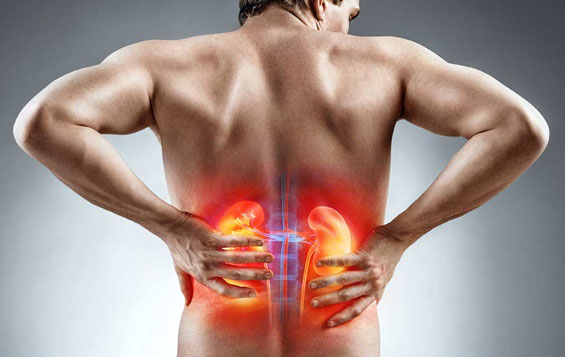
Some kidney problems can be early signs of chronic kidney disease (CKD), the type of kidney damage that can get worse over time and lead to kidney failure. Finding and treating these problems early can help prevent CKD from becoming kidney failure. Other kidney problems can lead to CKD if they are not treated. Knowing your body and contacting your health care provider when you notice something isn’t right can help you prevent bigger problems in the future.
Blood in your urine (pee) can be a sign that something is wrong with your kidneys or another part of your urinary tract. Having blood in your urine does not necessarily mean that you have kidney disease, but because kidney problems can lead to kidney disease, it is important to treat the problem as soon as possible. The treatment for blood in your urine depends on what is causing it.
Having protein in your urine is one of the earliest signs of kidney disease. Everyone has protein in their blood. Healthy kidneys filter waste and fluid out of your blood and leave nutrients you need, such as protein, in your blood. When the tiny filters in your kidneys are damaged, they allow a protein called albumin to escape from your blood into your urine. Treating this problem early can help prevent it from getting worse.
Kidney stones are one of the most common kidney problems. They are usually caused by a buildup of certain minerals that clump together inside your kidneys. Large kidney stones cause pain when they move through your urinary tract. You may not feel anything if you have a small kidney stone that moves easily through your urinary tract. When a kidney stone moves through your urinary tract and out of your body with your urine, it is called passing a kidney stone.
When your kidneys stop working in a matter of hours or days, it is called acute kidney injury (AKI). AKI is a very serious problem that can be life-threatening if it is not treated right away. Most of the time, AKI happens in people who are already very sick and in the hospital. However, it can happen as a result of an injury, infection or even some medicines.
Kidney infections are usually caused by bacteria that spread to your kidneys from another part of your urinary tract. Common symptoms of kidney infections include fever, vomiting or pain in your back, sides or groin. Women are more likely to have kidney infections than men because of the way women’s bodies are built. Treating kidney infections right away can help prevent permanent kidney damage.
Kidney pain can be felt in your middle to upper back and/or sides. Pain in your back or sides, however, does not necessarily mean there is something wrong with your kidneys.
Hepatitis C (hep C) is a viral disease that affects the liver. The liver is an organ in the human body that converts everything you eat or drink into nutrients and gets rid of toxins. There is a connection between hepatitis C and kidney disease. Hep C can cause kidney disease, and sometimes kidney patients can get hep C from hemodialysis, a treatment for kidney failure, if a medical facility does not carefully follow guidelines for infection control.